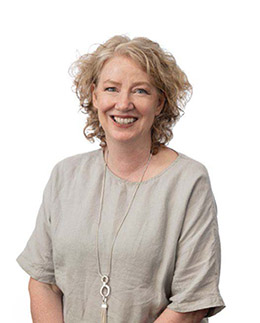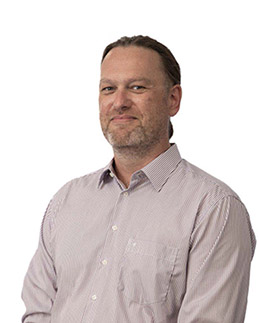AM24-PDW9: The Power of Pause: Thinking together to navigate complexity.
Professional Development Workshop: PDW 9
Tuesday 2 July 2024
9.15am to 5.45pm EEST
The Power of Pause: Thinking together to navigate complexity.
Facilitators: Helen McKelvie & Thomas Mitchell
Description
‘We do not learn from experience, we learn from reflecting on experience.’
John Dewey, American pragmatist philosopher
Choose the acronym that best captures current workplace experience: VUCA (volatile, uncertain, complex and ambiguous), RUPT (rapid unpredictable, paradoxical and tangled, BANI (brittle, anxious, non-linear, incomprehensible). Modern work can be overwhelming and difficult to navigate. In an era of constant change and connectivity, the importance of reflective practices has never been more apparent for navigating complexity. The turbulence of technical and economic, social, and political dynamics pushes workplace endeavors into unpredictable territory. In this environment, pausing to recalibrate emerges as both a sanctuary for sanity and a profoundly effective strategy. ‘The Power of Pause: Thinking together to navigate complexity’ is an immersive workshop where we practice creating the space to consider ‘what is really going on – ‘thoughtful inaction’. These spaces help thoughts to be formulated from felt experience and for clarity to emerge about what might be needed next.
The workshop design incorporates the practice of different forms of reflection and is informed by: Bion’s ideas about reverie and negative capability, a state of mind enabling “reflection without irritable reaching after fact and reason” (Bion 1984: French & Simpson 1999); Winnicott’s concepts of ‘holding’ and ’potential space’ (Winnicott 1971), Mindell’s ‘amplification’ of signals from the body as expressions of the unconscious (Mindell 2011); and Organisational Role Analysis tools and approaches (Newton Long & Sievers 2006).
The learning outcomes for the workshop are:
● Understanding the value of strategically pausing, creating space for thoughtful consideration of complex workplace challenges and opportunities.
● Recognising the range of settings in which pausing to reflect can be effective in recalibrating, and informing effective decision-making in complex situations
● Acquiring skills in diverse reflective practices,
● Having a strategy for applying the power of pausing in workplace routines.
What’s included in this full-day workshop?
The workshop includes a series of experiential learning exercises for participants to experience the ‘power of pause’, at the levels of the individual, in pairs, and groups and to consider wider systemic and contextual issues. This is a chance to practice using different approaches including somatic ‘amplification’, role drawing, active listening and free association to help make sense both of the ‘here and now’ experiences of the workshop, and apply them to ‘real life’ workplace dilemmas. We spend time reviewing how the practices can be built into back-at-work routines, so participants leave with strategies for navigating complexity using powerful pauses.
Who should attend this immersive workshop?
‘The Power of Pause’ is for practitioners working as or with leaders and managers who aspire to thoughtfully navigate the complexity of the modern workplace, those who seek a deeper understanding of unfolding situations, enabling informed responses rather than impulsive reactions. This is an immersive day of learning to support leadership development, exploring strategic approaches to combatting overwhelm and skillfully navigating complexity.
References
Bion, W. R. (1984). AttentionandInterpretation (reprint edn). LondonKarnac.
Newton, J., Long, S., and Sievers, B (2006) Coaching in Depth, the Organizational Role Analysis Approach. Karnac, London
Mindell, A. (2011) Dreambody, The Body’s Role in Revealing the Self. Deep Democracy Exchange, Portland
Winnicott, D. W. (1971). Playing and Reality. London- Tavistock/ Routledge.
Facilitator Bios

Helen McKelvie
Helen has had over 25 years of working in organisations to inform her approach to helping others gain insights into how they take up roles and how to achieve greater alignment with individual, team and organisational purpose. Her own roles as internal planning consultant, policy and project manager, and lawyer in workplaces in both the public and private sectors have provided her with first-hand experience of the complexity and challenges of organisational life.
Helen is an alumnus and now teaches in the Master’s program at the National Institute of Organisation Dynamics Australia (NIODA). She also has a Bachelor of Laws and a Bachelor of Arts from the University of Melbourne. In addition to her academic qualifications, Helen is an accredited practitioner of PRISM Brain Mapping, an online, neuroscience-based behaviour mapping instrument, and is a registered Analytic-Network Coach. Helen also has training and experience in workplace mediation and yoga teaching qualifications.

Thomas Mitchell
Over the last several years Thomas has enhanced his extensive professional experience by learning from, and working with, leaders across the executive coaching, group dynamics, and systems psychodynamics fields. A graduate of the NIODA Master of Leadership and Management – Organisation Dynamics, Thomas combines a deep understanding of working in large organisations with a passion for supporting others as they work toward achieving their goals and gaining a deeper awareness of their actions and drivers. Highly skilled in creating a safe environment to support participants explore their roles, Thomas manages the balance between empathy and candour allowing participants to feel secure whilst having their assumptions challenged.


 Translate
Translate